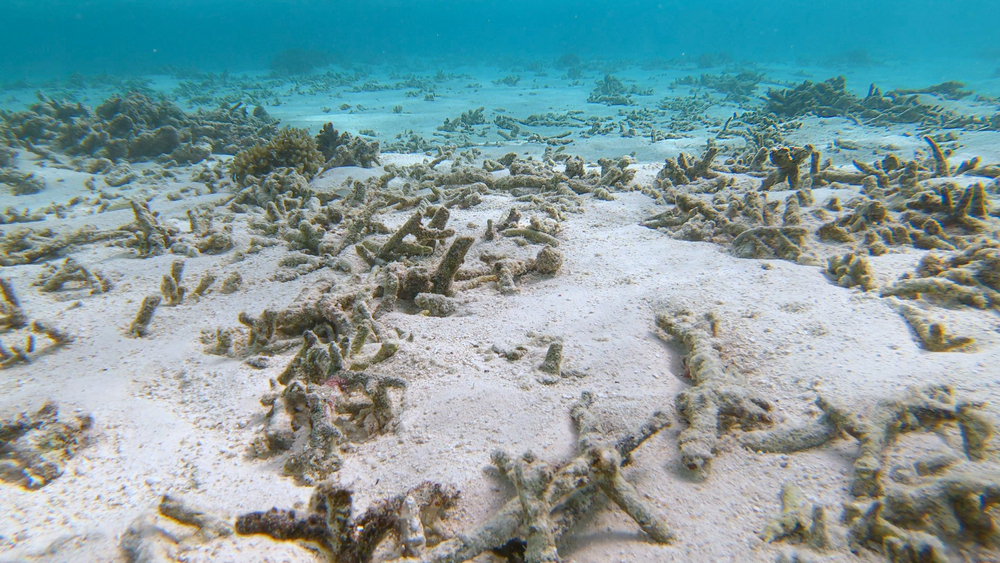Euronews.green writes that since February of 2023, bleaching events happened in at least 53 countries, territories and local economies, as per experts at the National Oceanic and Atmospheric Administration (NOAA) and International Coral Reef Initiative. Coral bleaching happens when stressed corals expel the algae that they would normally eat and that give them their color.
If the process happens continuously, the corals can die. Coral reefs are critical to marine ecosystems, as they prevent erosion and create a very prosperous environment for marine wildlife to thrive.
To find out more about the importance of marine ecosystems and how we can protect them, we talked recently to Alexandra Schnell, marine biologist and storyteller. Alex was part of the team that envisioned and created the documentary entitled "Secrets of the Octopus", which will be first transmitted in Romania on the Nat Geo Wild TV Channel during Earth Day, April 22nd.
Back in 2022, bleaching affected 90% one of the world's largest coral reefs, the Great Barrier Reef in Australia.
Alex believes that "the huge issue is the biodiversity loss and this is happening because of the waste, overfishing, climate change and so we're losing species at a high rate, species that we don't even know about are being lost to us."
Coral bleaching has been an increasing issue as the result of the fact that 2023 was the hottest year in history and for 2024, climate experts don't have much higher hopes.
“As the world’s oceans continue to warm, coral bleaching is becoming more frequent and severe,” Derek Manzello, NOAA Coral Reef Watch coordinator, said in a statement.
 Mihai - Cristian Ioniță
Mihai - Cristian Ioniță












Any thoughts?